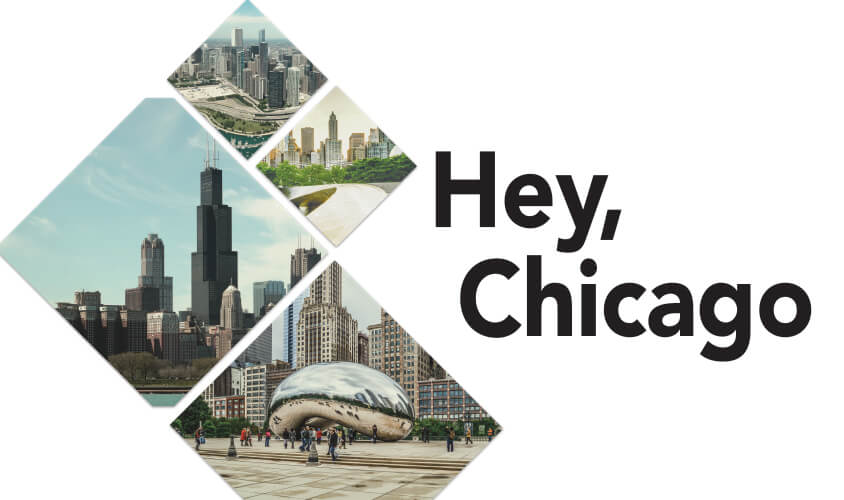Hey, Chicago: The Windy City Hosts GSX 2019
Chicago is always moving forward, looking to adapt and address the next challenge around the corner.
Once a small trading post at the mouth of the Chicago River, the city rapidly expanded and rebuilt after the Great Chicago Fire of 1871 nearly razed it to the ground. It became The White City in 1893 when it hosted the World’s Columbian Exposition, and one of the buildings built for the exposition still stands on the shore of Lake Michigan—the Museum of Science and Industry.
In 1900, to protect its water supply from pollution, the city worked with engineers to reverse the flow of the Chicago River. City residents also constructed the nation’s first skyscraper, invented mail-order retailing, the car radio, the TV remote control, and the first self-sustaining nuclear chain reaction.
Chicago is now a global city, home to more than 2.7 million people—and former U.S. President Barack Obama—spread across 100 neighborhoods.
It’s where 50 percent of all U.S. rail freight travels through and it hosts America’s busiest aviation center between Midway and O’Hare International airports.
With this growth, however, have come security challenges for the city, from the mob era in the early 20th century to rising gun violence in the 21st to the daunting cybersecurity threats that all municipalities face.
But Chicago has made strides to address these problems, creating an Office of Violence Prevention in 2018 to assess the city’s current violence prevention programs, review national best practices, and create strategic options for organizing the office.
And just this summer, newly elected Chicago Mayor Lori E. Lightfoot created the Keeping Our Communities Safe Initiative—a multi-agency approach to mitigate the frequency of violence in the Pulaski Corridor of Chicago.
“Empowering our communities means ensuring they have the services and supports needed to
thrive,” Lightfoot said in a statement. “All year long, we’re dedicating Chicago’s resources to our highest priority neighborhoods in an ‘all hands-on-deck’ effort to curb violence, tackle addiction, and lay a foundation for real and lasting positive change in our communities.”
To address cyber threats, the city created the Information Security Office (ISO) in 2013, which is responsible for evaluating and responding to cyber risks to the city’s technical estate.
“The ISO works in a ‘Shared Services’ model, evaluating and addressing risks and vulnerabilities within the city,” according to its FAQ sheet. “This model creates a center of excellence within ISO and results in significant operational efficiencies and cost savings over department driven responses.”
To address the cyber talent shortage, former Chicago Mayor Rahm Emanuel worked with the U.S. Department of Defense (DoD) in 2017 to create a cybersecurity training program at City Colleges of Chicago.
“Recent events on the national and global stage have demonstrated the critical need to secure our sensitive data and information technology—in both the public and private sectors,” Emanuel said of the program. “That’s why the City of Chicago is partnering with the DoD to prepare a highly-skilled workforce by tapping talent from the military, veterans, and local students to meet the urgent needs of the military and employers where thousands of jobs are added in this field each year.”
The program was the first of its kind and provided students with apprenticeships after completing it at Accenture, Allstate, Aon, ComEd, Keeper Security, and Microsoft.
During this week in Chicago, GSX attendees will engage about the challenges they face as security professionals. They’ll hear from experts in all fields and discuss solutions to common problems with their peers. All to learn, like Chicago, how to be prepared to face the security challenges around the corner.
